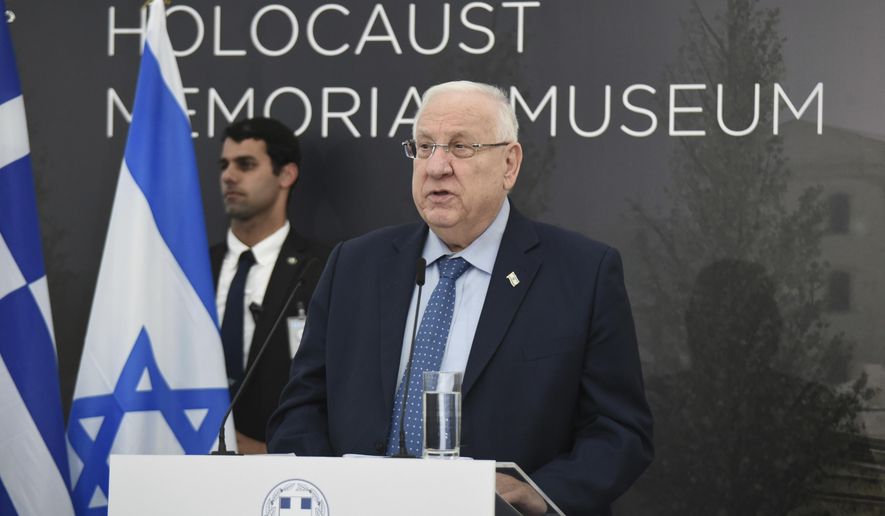THESSALONIKI, Greece (AP) - Israel’s president and Greece’s prime minister attended a foundation ceremony on Tuesday for a Holocaust memorial museum in the Greek city of Thessaloniki, which lost 97 percent of its Jewish community in German World War II death camps.
Reuven Rivlin and Alexis Tsipras symbolically planted two olive trees on the plot.
The planned six-story building will be built by 2020, next to the northern city’s old railway station, from which around 55,000 Thessaloniki Jews were forced into goods wagons for the camps. About 50,000 died there.
Tsipras said the museum will fulfill an old debt for the city, around 40 percent of whose pre-war population was Jewish.
Overall, about 90 percent of Greece’s Jewish population was killed by Nazi forces during the war.
“It is very important for Thessaloniki, for the Jewish community, and for humanity that the city is getting a Holocaust museum,” Auschwitz camp survivor Heinz Kunio said.
Kunio, 90, was among the first group of Thessaloniki Jews to reach the concentration camp in 1943, together with his sister and parents. All survived because they spoke German and were employed as interpreters.
“I will always remember the five great chimneys that belched black smoke 30 meters (90 feet) high,” he told The Associated Press. “And underneath there was something like white swirling steam. Above was the smoke from the bodies, and below from the souls of the dead.”
The museum will occupy a plot close to the former Jewish neighborhood of Baron Hirsch, turned by the Germans into a ghetto and transit camp. Designed by Israeli and German architects, its funding will include contributions from the German government and Thessaloniki’s Jewish community - currently about 1,300-strong.
Community leader David Saltiel told the AP that the project enjoyed strong backing from the city’s residents and officials.
“This city had been covered in a veil of silence,” he said. “Survivors (from the Nazi camps) didn’t find the best possible conditions when they returned, which is why Thessaloniki’s Jews were doubtful as to whether this project would go ahead. But now everyone wants it.”
Thessaloniki mayor Yiannis Boutaris said the museum would tell the story of Jewish communities from all over Greece and the southwestern Balkans.
“It will symbolize our shame,” he said. “For what happened, for what we did, and mostly for what we could not or did not wish to do … during and after the war.”
___
Follow Costas Kantouris at http://twitter.com/CostasKantouris




Please read our comment policy before commenting.